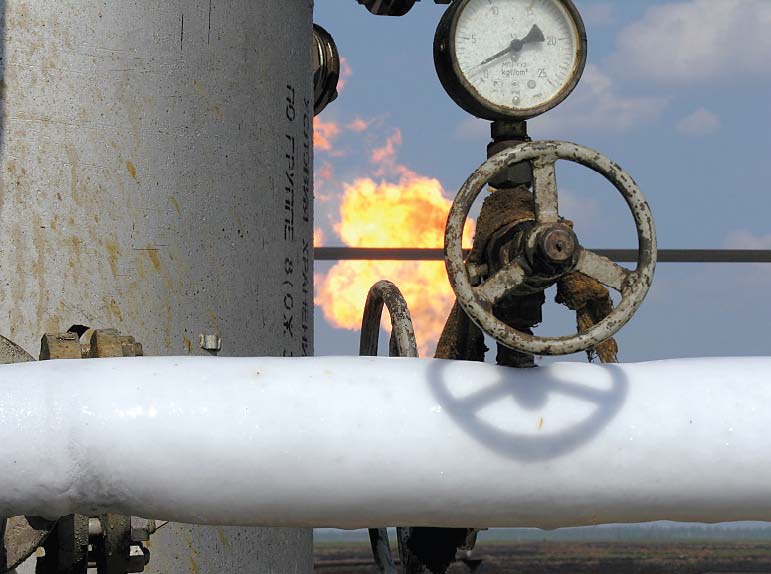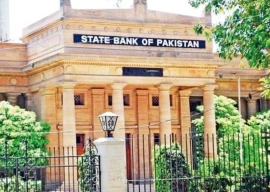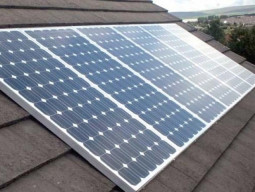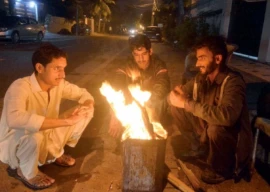
The government on Saturday increased gas prices for industry's in-house power generation plants by 17% and decided to impose a special levy over and above the prescribed rates to make it less attractive to run factories on gas.
The government, however, shunned a proposal to also increase gas prices for residential consumers in the range of 2.4% to 20%.
The Economic Coordination Committee (ECC) of the Cabinet took these decisions as part of the International Monetary Fund (IMF) condition to either cut the gas supplies to industry's in-house power generation plants by January 31 or make it more expensive than the electricity prices.
The government has decided not to discontinue gas supplies but would raise the rates to a level where the gas-based power generation will be at least 5% more expensive than the national grid's electricity.
The ECC, following a thorough discussion, decided to approve an upward revision in gas tariff for captive power plants from Rs3,000 per MMBtu to Rs3,500 per MMBtu to ensure the required revenue for the gas sector during FY2024-25, according to an announcement by the Ministry of Finance after the meeting.
Finance Minister Muhammad Aurangzeb chaired the ECC meeting on a holiday - a day before the expiry of the deadline to approve the prices, which have already been determined by the Oil and Gas Regulatory Authority (OGRA).
The finance ministry stated that the ECC did not agree to increase the tariff for domestic consumers with a view to protecting them from additional burden. The Petroleum Division had also proposed increasing gas prices for residential consumers by Rs100 per MMBtu for all categories.
"The ECC, however, instructed the Petroleum Division to take necessary measures for the imposition of a grid transition levy on captive power plants to enhance energy sector efficiency," announced the finance ministry.
The IMF has imposed a major condition to disconnect the gas connections of the industrial units, known as captive power plants. The condition was imposed on the assumption that these plants were running at 30% efficiency, and the gas should be diverted to more efficient liquefied natural gas (LNG)-based power plants.
However, some plants, like those owned by former finance minister Miftah Ismail, are said to be highly efficient, and such industries may look for some alternative fuels. The ECC, considering the IMF instructions, decided that the levy will be imposed over and above the Rs3,500 per MMBtu price so that it becomes more expensive than the grid-based electricity.
This will further increase the cost of doing business for the industries, which are passing through a phase of negative growth. The Large-Scale Manufacturing Index remains in red for long. The big industries are hit by undue heavy taxation, double-digit interest rates, and high costs of electricity and gas. The ongoing drive to stabilise the economy by slowing its wheels has also negatively impacted the industrial sector.
Pakistan's electricity demand from its national grid is falling due to highly unaffordable rates, slowing industrial wheels, and the cheaper rooftop solar power generation technology.
About 40 days ago, OGRA had issued revised estimated revenue requirements for FY 2024-25 for both Sui Northern Gas Pipelines Limited (SNGPL) and Sui Southern Gas Company Limited (SSGCL). The SNGPL's requirements for this fiscal year have been estimated at Rs578 billion, and SSGCL needs Rs369 billion to remain profitable despite incurring huge gas losses.
The cumulative revenue requirements of both the Sui companies are Rs947 billion for this fiscal year, according to the Petroleum Division's officials.
OGRA, in its determination, while considering the previous years' revenue shortfalls of both the gas companies owing to inadequate gas price revisions made by the government, has also allowed a cumulative Rs100 billion as adjustment to both the Sui companies.
The projected gas sale revenues have been assumed on the premise that captive power plants will continue to operate till June 2025. In case captive power plants are shut down by January 31, these companies will face a shortfall, the ECC was informed.
The IMF has also asked Pakistan to end gas subsidies by abandoning its ongoing practice of supplying imported gas at lower rates.
The average LNG price for the last six months was Rs3,500, but the government was providing gas at Rs3,000 to these in-house power generation plants.












1737796524-0/Untitled-design-(32)1737796524-0-270x192.webp)











COMMENTS
Comments are moderated and generally will be posted if they are on-topic and not abusive.
For more information, please see our Comments FAQ